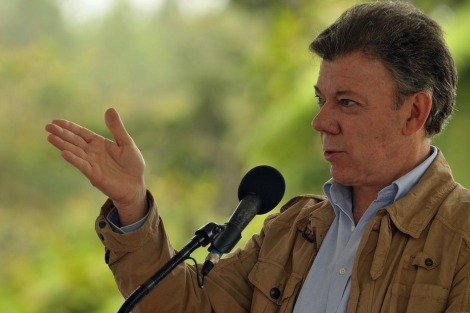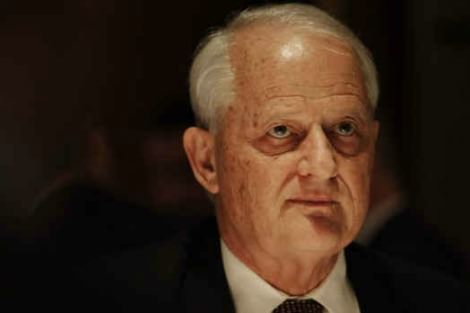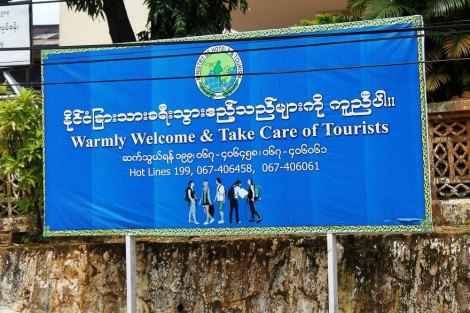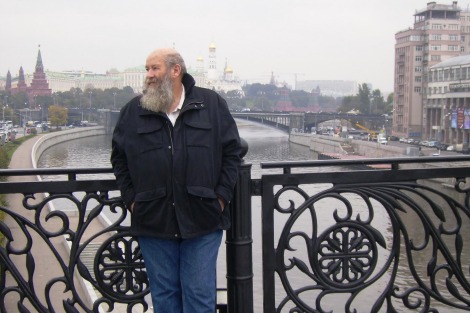Keywords: Nobel Peace Prize
-

INTERNATIONAL
The unprecedented attacks by Daesh in Iran in which at least 12 people were killed and 39 injured come at an incredibly sensitive time for all countries in the Middle East. What is often obscured by commentators is that much of the present violence in the Middle East is political, not religious, even though religious labels are used as a shorthand for the competing blocs (in much the same way as 'Catholic' and 'Protestant' were used during the Troubles in Northern Ireland).
READ MORE 
-

INTERNATIONAL
- Antonio Castillo
- 10 October 2016
2 Comments
Colombia has been on a massive political and emotional roller coaster. A peace accord to end the 52 years civil war was signed on 26 September, only to be rejected in a referendum on 2 October. A few days later President Juan Manuel Santos, whose referendum was rejected, received the 2016 Nobel Peace. All of this happened not in a hundred years, but in the space of a few weeks. Yet for those who know a bit about Latin American politics the defeat of Santos in the referendum was not unexpected.
READ MORE 
-

AUSTRALIA
- Justin Glyn
- 15 February 2016
7 Comments
If Phillip Ruddock's appointment as Australia's first special envoy to the United Nations on Human Rights is about demonstrating the worthlessness of current international human rights protection structures (and the consequent hollowness of their criticisms of Australia), it is a rather short sighted one. Appointing a person with a weak record of upholding human rights in the area where Australia itself is weakest sends the unmistakable signal that Australia is no longer committed to the human rights project.
READ MORE 
-

RELIGION
- Frank Brennan
- 03 December 2015
The consideration of medico-legal problems in the public square of a pluralistic democratic society keeping pace with profound technological change is often marked by simplistic assertions, precluding considerations of comprehensive world views, whether religious or philosophical. It is now commonplace for doctors to be told to leave their consciences at the door, as their patients are consumers and they are suppliers and of course the market decides. Debates about law and policy are often resolved with simplistic assertions about individual rights and autonomy, with little consideration for the public interest, the common good, and the doctor-patient relationship. Even conscience is said to be a matter for contracting out. This evening I ask whether there are more compelling ways to resolve medico-legal dilemmas, while conceding a limited role for law in determining the range of acceptable answers.
READ MORE
-

- Sean McManus
- 25 June 2015
4 Comments
As much as any other religious figure in Australia, Frank Brennan has maintained a religious perspective while engaging in issues of ethics and justice in contemporary Australia. His book Amplifying that Still Small Voice emphasises the importance of the 'religious sense that the human person is created in the image and likeness of God', while speaking in the language and terms that are understandable to the public square.
READ MORE
-

AUSTRALIA
- Catherine Marshall
- 10 April 2015
1 Comment
Myanmar is metamorphosing like a vast time-lapse image, sloughing off its old skin and replacing it with a glittering new facade. But decades of military rule cannot be dismissed so easily, and there is much for the traveller to consider. In the first place, is it ethical to visit at all? Travellers have long taken their cue from Myanmar's beloved democracy advocate and Nobel Peace Prize winner Aung San Suu Kyi.
READ MORE 
-

INTERNATIONAL
- Justin Glyn
- 24 March 2015
9 Comments
The emotional parades welcoming troops home from the end of 'Operation Slipper' in Afghanistan leave us contemplating the horrific effects of war on veterans and their families. It is absolutely right, indeed imperative, that we grieve with them and count the costs. In doing so, however, we should beware the danger of selective empathy.
READ MORE 
-

INTERNATIONAL
- Howard Willis
- 19 February 2014
6 Comments
On the occasions I got into detailed discussions with strangers in Moscow, a pattern emerged. Saying I was Australian prompted a polite request for clarification: 'But your ancestry?' The reply that I was fifth-generation Australian was treated as an evasion, or met with the assumption that my ancestors were 'bandits'. Generally, Muscovites took a second look at me and the box they ticked was 'Jew'.
READ MORE 
-

AUSTRALIA
- Fatima Measham
- 15 July 2013
9 Comments
Voters find it difficult to buy ideas wholesale when they don't make sense in retail. Imagine a voter who would like to see the Labor Party build on reforms in education and health but cannot abide its policy on asylum seekers. This is where the focus on personalities actually matters. Much of the dissatisfaction with leaders ultimately rests on a public assessment of the way policies are prosecuted.
READ MORE 
-

MARGARET DOOLEY AWARD
- Evan Ellis
- 10 January 2013
4 Comments
St Benedict of Nursia knew about living in a dying world. He was born 25 years after the Vandals sacked Rome and died months after the Ostrogoths had their turn. He watched as old certainties went up in flame. As existing institutions were hollowed out or winnowed completely, Benedict started a revolution. Wednesday 12 September
READ MORE 
-

MARGARET DOOLEY AWARD
- Evan Ellis
- 12 September 2012
12 Comments
St Benedict of Nursia knew about living in a dying world. He was born 25 years after the Vandals sacked Rome and died months after the Ostrogoths had their turn. He watched as old certainties went up in flame. As existing institutions were hollowed out or winnowed completely, Benedict started a revolution.
READ MORE 
-

RELIGION
- Frank Brennan
- 21 August 2012
Fr Frank Brennan SJ is board director of St Vincent's Health Australia and professor of law and director of strategic research projects (social justice and ethics) at Australian Catholic University. Text is from his address at Leading the Way, the Catholic Health Australia Conference, Perth 21 August 2012, Governance and Mission stream.
READ MORE